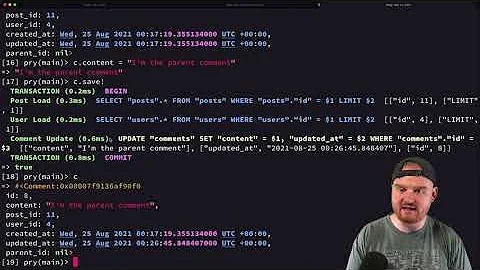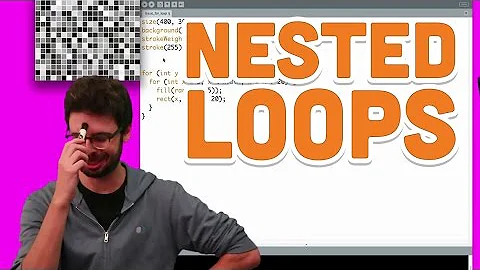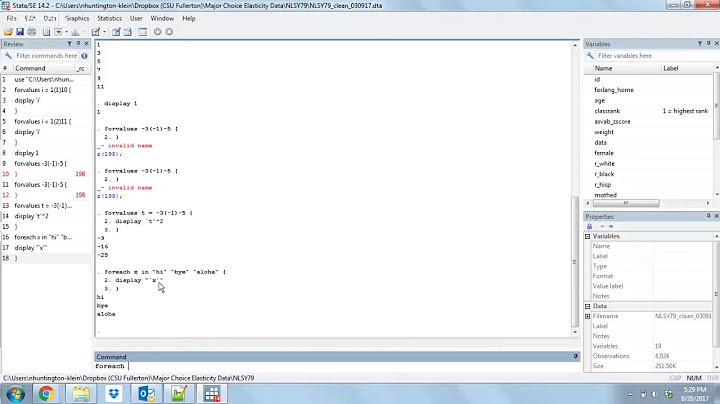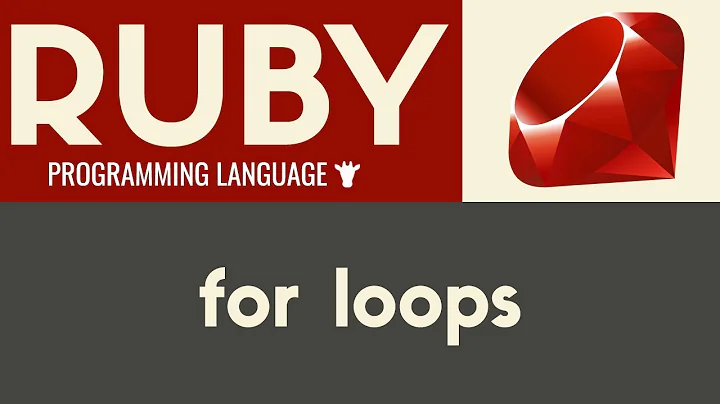How to create a nested loop with Ruby the "Right Way!"?
Solution 1
I'd write it like this:
def sum_to_n?(arr, n)
return true if arr.empty? && n.zero?
arr.combination(2).any? {|a, b| a + b == n }
end
That seems to be a pretty Rubyish solution.
Solution 2
I came across this on CodeWars. The accepted answer sure does look very Rubyish, but that is at the cost of performance. Calling arr.combination(2) results in a lot of combinations, it'd be simpler to go over the array element by element and search whether the 'complement' sum - element exists. Here's how that'd look like -
def sum_to_n?(arr, n)
(arr.empty? and n.zero?) or arr.any? { |x| arr.include?(n - x) }
end
Solution 3
Beside @jorg-w-mittag's answer. I found another solution using 'permutation'.
https://stackoverflow.com/a/19351660/66493
def sum_to_n?(arr, n)
(arr.empty? && n.zero?) || arr.permutation(2).any? { |a, b| a + b == n }
end
I didn't know about permutation before. Still like @jorg-w-mittag answer because its more readable.
Solution 4
This one will do it in O(n.log(n)) rather than O(n²):
a = 1, 2, 3, 4
class Array
def sum_to? n
unless empty?
false.tap {
i, j, sorted = 0, size - 1, sort
loop do
break if i == j
a, b = sorted[i], sorted[j]
sum = a + b
return a, b if sum == n
sum < n ? i += 1 : j -= 1
end
}
end
end
end
a.sum_to? 7 #=> [3, 4]
Related videos on Youtube
David Gomez
Frontend Software Engineer with a strong knowledge of JavaScript and React, solid experience with modern JavaScript libraries and tooling such as Webpack among others. Being passionate about clean and beautiful designs I consider HTML and CSS a fundamental part of the frontend development and not just a mere formality. Using design tools like Sketch to improve my understanding of the UX design process and help to express my vision on how the frontend development must be a complement of the overall user experience. I like functional programming concepts and I try to apply its simplicity, expressiveness, and abstractions to the code I write, always looking for a simple and elegant solution to every task.
Updated on June 25, 2022Comments
-
 David Gomez almost 2 years
David Gomez almost 2 yearsI'm in the process of learning Ruby, taking a Berkeley's MOOC, and, in some of these MOOC's homework we have an exercise that says:
Define a method sum_to_n? which takes an array of integers and an additional integer, n, as arguments and returns true if any two elements in the array of integers sum to n. An empty array should sum to zero by definition.
I already created two methods that can do the job, but I'm not comfortable with any of them because I think they are not written in the Ruby Way. I hope some of you can help me to learn which would be the right way!
The first method I made uses the
eachmethod for both iterations, but what I don't like about this method is that every number is summed with every other number, even with the same number, doing something like this:arr[1, 2, 3, 4] => 1+1, 1+2, 1+3, 1+4, 2+1, 2+2, 2+3, 2+4, 3+1, 3+2... 4+3, 4+4As you can see, there's a lot of repeated sums, and I don't want that.
This is the code:
def sum_to_n?(arr, n) arr.each {|x| arr.each {|y| return true if x + y == n && x != y}} return true if n == 0 && arr.length == 0 return false endWith the other method I got what I wanted, just a few sums without repeating any of them or even summing the same numbers, but it looks HORRIBLE, and I'm pretty sure someone would love to kill me for doing it this way, but the method does a great job as you can see:
arr[1, 2, 3, 4] => 1+2, 1+3, 1+4, 2+3, 2+4, 3+4This is the code:
def sum_to_n?(arr, n) for i in 0..arr.length - 1 k = i + 1 for k in k..arr.length - 1 sum = arr[i] + arr[k] if sum == n return true end end end return true if n == 0 && arr.length == 0 return false endWell, I hope you guys have fun doing a better and prettier method as I did trying.
Thank you for your help.
-
 PJP over 10 yearsWhile Ruby has
PJP over 10 yearsWhile Ruby hasfor, we tend to ignore it because there are some side-effects, such as it leaving its intermediate variable hanging around to clutter the variable space, and it forcing us to iterate over the container using calculated indexes, rather than allowingeachto pass in each item individually. Indexes missing the first or last element, or falling off the end, are common bugs in all languages, andeachhelps avoid that. So, while it might seem like a stylistic choice, it's really a defensive programming choice. And, welcome to Stack Overflow!
-
-
Amadan over 10 yearsIt's not O(n) if it uses
Array#sort. -
Boris Stitnicky over 10 yearsYou'r right, including
Array#sort, it's (probably)O(n.log(n)), edited the answer. -
 dancow over 10 yearsDamn. I'm a Rubyist and even I'm surprised at how Rubyish that solution was. Well done.
dancow over 10 yearsDamn. I'm a Rubyist and even I'm surprised at how Rubyish that solution was. Well done. -
 David Gomez over 10 yearsThis is exactly what I meant.
David Gomez over 10 yearsThis is exactly what I meant. -
fotanus over 10 yearsYou is a smart guy, I have no doubts about that. Can you Enlighten us with a generic answer for this question? Your works because a method that does what the OP wants exists, but what if you have a generic nested loops? Or you should not have any, and if you have you are doing it wrong?
-
Mark Thomas about 9 years
permutationconsiders order important. This will result in redundant sums, e.g.a + bandb + a. Thereforecombinationis the better choice in this case. -
Mark Thomas about 9 yearsWhy do you need the first parenthetical expression? Empty arrays won't cause
any?orinclude?to throw errors. It's a good answer, I just think it could be a little more concise. -
rohitpaulk about 9 years@mark-thomas - "An empty array should sum to zero by definition" is what the question says - If it weren't for the first expression,
sum_to_n?([], 0) would returnfalse`.











